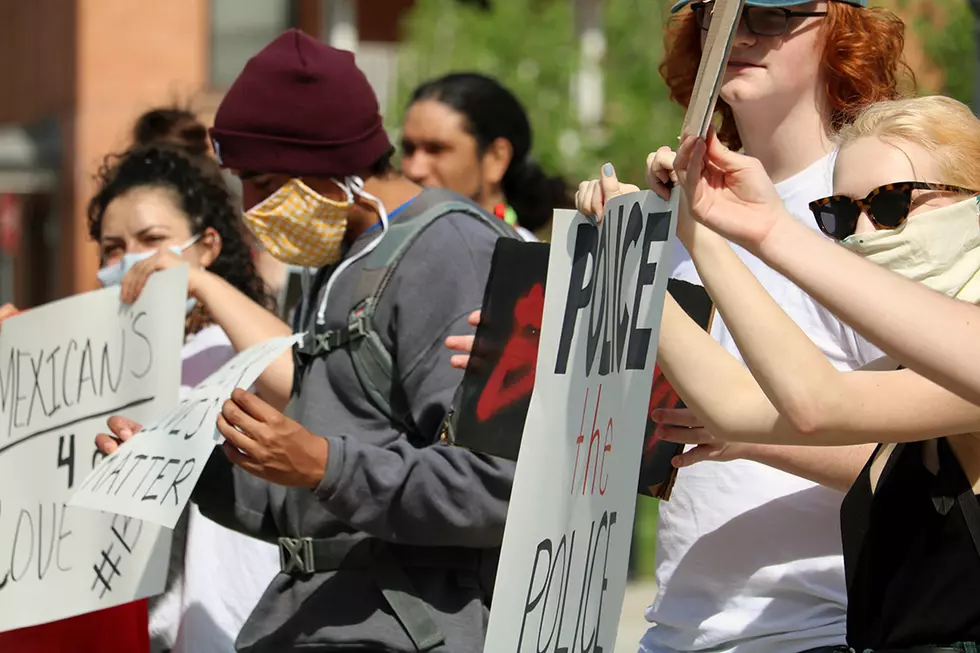
Missoula’s justice, equity resolution still alive; draws mixed reactions from public
The city and county of Missoula continue to pursue a resolution stating their commitment to a just, equitable, diverse and inclusive community, saying that all do better when groups considered to be disenfranchised do better as well.
The resolution, known as JEDI, has sat before both governments now for several weeks. The Missoula City Council held its primary public hearing on the matter on Monday, and Missoula County followed on Thursday.
However, the city could adopt its resolution next week while the county postponed a decision for another month, saying it wanted to provide more time for comments since the document has undergone edits based on “a lot of public interest.”
“There's been a lot of public interest and comments on this draft resolution, and based on those comments, we've made significant edits to the resolution,” said Jamar Galbreath, the county's diversity coordinator.
The resolution, considered necessary by some and a waste of time and money by others, looks to establish new ways to review and revise local policies, procedures and initiatives that better reflect justice, equity, diversity and inclusion. It also looks to track progress on the issue.
The resolution attempts to strike at a number of concerns that cover perceived racial or group inequity, economic inequity, equal opportunity and other issues. It could also encompass government decisions on housing, poverty and homelessness, among others.
“We've done a lot of work as a community in measuring disparities. The challenge now is what we do about it, and how we lift everyone up,” said Donna Gaukler, director of city Parks and Recreation. “We want to look at our policies and processes and ensure they support effective and efficient use of taxpayer dollars, and ensure those dollars are spent to improve opportunities for all residents.”
According to figures presented this week, roughly 32% of Montana's Native American population lives in poverty, as does 18% of the state's Hispanic population. Around 14% of the state's black population lives in poverty, 13% of the Asian population, and 12% of the state's white population.
The resolution suggests that Native Americans are disproportionately affected by health disparities like substance abuse and depression. They also suffer from other social issues that play a role in health, such as poverty and a lack of health insurance.
“When we look at this through an equity lens, it's a huge difference,” said Laurie Francis, executive director of the Partnership Health Center. “It's truly about all people. When you help some, you actually help all.”
But not everyone agrees with the resolution and, at least on the county side, comments opposed outnumbered those in favor just a few weeks ago. Some believe the resolution smacks of socialism, creates a problem where one doesn't currently exist, will waste taxpayer dollars, and that government should have other matters to attend to.
In summarizing comments received thus far, Galbreath suggested that negative comments focused on concerns that the resolution was designed to commit the county to “a long, arduous and impossible road to deconstruct inequities.”
Some also suggested it would only give lip service to issues and challenges. Others believe “it would be undemocratic, shouldn't be prioritized, or would lead to more government regulation,” Galbreath said.
One opponent suggested that “Taxpayers already pay for a variety of programs that help a variety of people without regard to their background, race, or economic status.”
“To make the sweeping statement at the start of this resolution that our residents are sinners simply for being predominantly white, self-sufficient, law-abiding citizens that volunteer and work in our community is also to assume that we live in a very bad community not worth saving,” said Susan Reneau.
But supporters have cited the city and county's current commitment to the resolution's principals, such as Missoula's loudly stated support for members of the LGBTQ+ community during the Legislature.
The city also was the first in the state to adopt an ordinance protecting residents from discrimination based on sexual orientation and gender identity. It also has supported marriage equality. Some contend that equitable solutions are needed to solve today's challenges.
“I have worked for a number of years as a volunteer housing advocate in Missoula, and I have very much seen the need for this kind of resolution,” said supporter Joe Loos. “While I imagine you will get opposition from those who will deny the history of the forced removal of the Salish and Kalispell people from this valley, the truth that we have inherited that legacy, and that many of us have actually benefited from it, cannot be denied.”
Based upon comments received over the past few weeks, the county has made edits to its resolution, which prompted commissioners to postpone a final decision until September. The city, however, is set to make a final decision on Monday.
Among the county's changes, Galbreath said the resolution has been framed to “better recognize colonialism and government sanctions” on the Séliš, Kalispell or Pend d'Oreille nations. It also does more to recognize aging adults.
“We've made some significant shifts in the order of the resolution to generally improve the articulation and layout of our challenges,” Galbreath said. “It's really important that we work towards really equitable solutions.”
